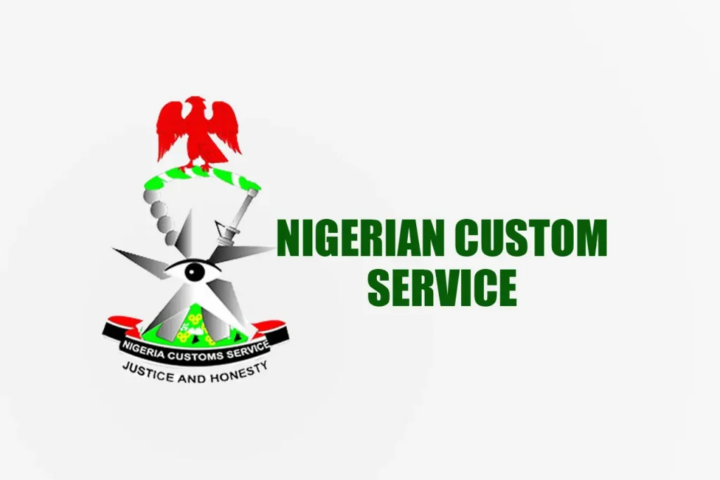The Nigeria Customs Service (NCS) has intensified efforts to strengthen professionalism and ethical standards within its ranks by launching a new round of leadership and capacity-building training for its newly promoted officers. The programme, which focuses on accountability, innovation, and effective service delivery, aligns with the ongoing reform agenda under Comptroller-General Bashir Adewale Adeniyi.
In what has been described as one of the Service’s most structured leadership training drives in recent years, the NCS rolled out a series of workshops and retreats for officers across different commands. The sessions are designed to equip newly elevated officers with modern management skills, strategic thinking abilities, and operational discipline required for their new responsibilities.

During the recent sessions held in Lagos, newly promoted Deputy Controllers and Assistant Controllers underwent a refresher course that emphasized ethical leadership, supervisory discipline, and adherence to standard operating procedures. The training also covered risk assessment, cargo clearance management, and effective enforcement to curb smuggling and revenue leakages.
Addressing participants, senior management officials reminded officers that promotions come with higher expectations for performance and accountability. They urged participants to lead by example, uphold integrity, and strengthen Customs’ image as a transparent, technology-driven agency committed to trade facilitation and national economic growth.
Similarly, at the Service’s headquarters in Abuja, a leadership retreat for newly promoted Comptrollers was organized to enhance strategic leadership capacity at the top management level. The five-day retreat featured lectures and discussions on leadership ethics, change management, innovation in customs administration, and stakeholder engagement. The Comptroller-General, Adewale Adeniyi, urged the officers to view their promotion as both recognition and a call to higher service, adding that the Service’s current transformation drive depends largely on how effectively senior officers lead their teams.
He highlighted accountability and innovation as the twin pillars of the Service’s modernization agenda. According to him, the new Customs leadership framework is built on transparency, human capacity development, and a strong sense of national duty. He reiterated that officers must adapt to global trends, leverage technology in their operations, and maintain zero tolerance for corruption.
In the same vein, commands across the federation, including the Apapa, Ogun, and Ondo-Ekiti Area Commands, have been conducting internal training for newly promoted officers. These sessions focus on operational discipline, inter-agency collaboration, and compliance with both internal regulations and external trade laws. Area Controllers in charge of these commands emphasized that the trainings were not ceremonial but practical exercises meant to ensure officers perform optimally in their new roles.
The Apapa Area Command, one of the busiest maritime entry points in West Africa, highlighted the need for officers to combine enforcement with customer service. Officers were encouraged to balance firmness in enforcement with professionalism in dealing with importers, exporters, and freight agents. The Command’s leadership noted that improving transparency in cargo clearance would not only raise government revenue but also build traders’ confidence in the system.
The Customs management has also reiterated that training and promotions are being handled strictly on merit. The CGC explained that the era of nepotism and favoritism in career progression is over, stressing that competence and ethical behavior will continue to define promotions within the Service. This, he said, is part of a broader institutional effort to rebrand Customs as a performance-driven, professional organization.
Experts and trade analysts have commended the move, noting that such structured human-capital development is key to sustaining Customs’ reform and modernization agenda. They observed that continuous training helps reduce operational errors, enhance compliance, and ensure officers understand the impact of their work on the nation’s economy.
The Service has also incorporated modules on innovation and digital customs management into its training curriculum. This includes the use of data analytics for trade intelligence, the automation of clearance processes, and the deployment of technology for border security operations. Officers are being taught to embrace the Customs modernization programme as a tool for improving efficiency and accountability.
Beyond classroom sessions, the NCS is adopting a mentorship approach where senior officers guide their subordinates on leadership and integrity. The initiative aims to build a culture of professionalism and public trust within the organization. The CGC has charged all officers to ensure that the Customs Service remains a key driver of Nigeria’s trade competitiveness in the region.
With the government’s growing reliance on Customs revenue and border management to stabilize the economy, the Service’s focus on accountability and innovation is expected to yield positive results. Analysts believe that as more officers receive such leadership and ethics training, compliance levels will rise, leakages will reduce, and revenue generation will improve significantly.
For the newly promoted officers, the message is clear — promotions come with responsibility, discipline, and service. The Customs leadership has left no doubt that accountability, innovation, and professionalism will define the next phase of the Service’s evolution, as it continues to play a crucial role in trade facilitation, revenue generation, and national security.
Support InfoStride News' Credible Journalism: Only credible journalism can guarantee a fair, accountable and transparent society, including democracy and government. It involves a lot of efforts and money. We need your support. Click here to Donate
